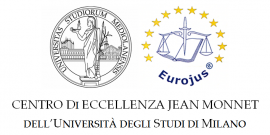The strengthening of the European Technological Sovereignty and its legal bases in the Treaties
Le autrici mostrano come la sovranità tecnologica europea sia evocata dalle istituzioni dell’UE per sostenere che l’Unione dovrebbe essere più competitiva sul mercato globale e per porre rimedio al problema della sua arretratezza tecnologica. Allo stesso tempo, il concetto ha una dimensione assertiva e difensiva e ciò solleva problemi di natura giuridica. Considerata la sua ampia portata, ci sono questioni giuridiche di non poco conto che emergono dall’utilizzo di tale concetto. Il saggio dimostra come sia complessa l’identificazione della base giuridica della sovranità tecnologica e si sofferma in modo critico sulle basi giuridiche di alcune misure (o proposte di misure) prese per rafforzare la sovranità tecnologica europea. Si dimostra che c’è una tendenza ad usare frequentemente l’art. 114 del TFUE anche al di là di quanto previsto dal principio di attribuzione. Tuttavia, quando il rafforzamento della sovranità tecnologica interessa la sicurezza nazionale, l’UE sembra non avere le competenze necessarie. Le conseguenze dell’esercizio delle competenze dell’UE in queste situazioni sono potenzialmente molto importanti per il processo di integrazione europea: in principio, si potrebbe assistere ad un avanzamento di tale processo.
Per leggere l’articolo completo, clicca Qui
The authors show how the European technological sovereignty is evoked by the EU institutions to argue that the EU should be more competitive in the global market and fill in its technological gaps. At the same time, this concept has an assertive and defensive dimension in its framing which raises many questions. There are not inconsiderable legal issues possibly arising from its application in light of its extensive scope. The article demonstrates the complexities of the span of the legal base for technological sovereignty when subjected to scrutiny from a legal perspective and critically examines the legal bases underpinning the measures (or proposed EU measures) taken to strengthen European technological sovereignty. The essay shows that there is a trend to stretch the use of art. 114 TFEU beyond the limits allowed by the principle of conferral. However, when the enhancement of the technological sovereignty affects national security, the EU appears to fall short of the required competences. The consequences for the European integration process of the Union’s exercise of the competences necessary to enhance European sovereignty in these situations, are potentially far-reaching. In principle, such an exercise may imply the advancement of European integration process.
To read the full article, click Here


